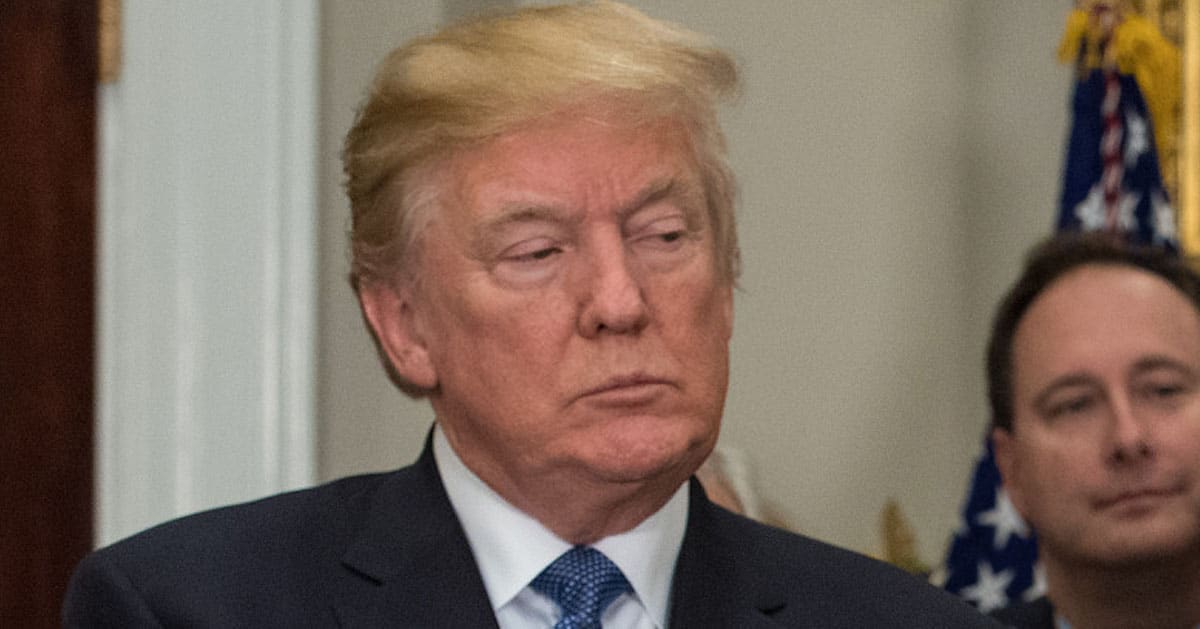



Jamelle Bouie’s latest column dares to call President Trump a "normie Republican," a claim that’s as bold as it is baffling.
Fox News reported that the New York Times opinion writer, in his July 2 piece, argues Trump’s policies hug the GOP line tighter than his tailored suits. But does this label hold up, or is it just another attempt to sand down Trump’s edges?
Bouie’s piece, titled "Face It. Trump Is a Normie Republican," asserts that Trump’s second term mirrors standard Republican governance.
He compares Trump’s first term to what a third George W. Bush term might have looked like, citing policies like the 2017 tax cuts.
Bouie points to the 2017 Tax Cuts and Jobs Act as Trump’s hallmark achievement. He calls it a “massive upper-income tax cut” that showered wealth on the elite, including Trump’s inner circle. Sounds like Bouie’s saying Trump’s populism is just a flashy wrapper on the same old GOP gift to the rich.
That tax cut, Bouie argues, wasn’t the economic revolution Trump promised for the forgotten American. Instead, it padded the wallets of the already-wealthy, leaving Main Street to cheer for crumbs. If this is “normie” Republicanism, it’s the kind that fuels progressive talking points.
Bouie doesn’t stop there; he claims Trump’s first term was a parade of crises, mishandled like Bush’s final years.
“Trump even ended his term, as Bush did, with a rolling set of disasters, each exacerbated by his mismanagement,” he writes. Yet, Trump’s base might argue those crises were battles against a hostile establishment.
The columnist insists Trump’s domestic policies could’ve come from any Republican playbook. Despite the MAGA rallies and fiery tweets, Bouie sees Trump as a loyal soldier for GOP ideology. This view conveniently ignores the anti-establishment fervor that makes Trump a lightning rod.
Last month’s airstrike on Iran’s nuclear facilities gets Bouie’s attention, too. He ties it to a Republican hawkish streak, stretching from Bush’s 2002 “axis of evil” speech to Trump’s 2018 pick of Mike Pompeo as secretary of state. Bouie’s drawing a tidy line, but is it too neat?
“With one decision, Trump fulfilled the dreams of a generation of Republican hawks,” Bouie writes. He links the strike to John McCain’s 2007 “bomb Iran” jest and Bush’s rhetoric, suggesting Trump’s just following the GOP script. Yet, Trump’s supporters might see it as a bold move, not a recycled one.
Bouie argues Trump is a “Republican politician committed to the success of the Republican Party.”
This paints Trump as a party man, not the outsider who upended the GOP in 2016. It’s a clever framing, but it sidesteps the populist wave Trump rode to power.
Not everything about Trump fits the “normie” mold, Bouie concedes. He admits some aspects of Trump’s administration hint at a “specific authoritarian vision” unique to the president and his allies. This nod to Trump’s distinct style feels like a grudging afterthought.
Bouie’s piece tries to box Trump into a predictable Republican frame, but it’s a tough sell. Trump’s appeal has always been his defiance of party norms, not his adherence to them. Bouie’s argument might resonate with Times readers, but it risks missing the forest for the trees.
“Perhaps the most underappreciated fact about President Trump is that he is a Republican,” Bouie declares.
If that’s the case, it’s only because Trump’s larger-than-life persona overshadows the party’s quieter machinery. His supporters don’t see a “normie” but a fighter against a broken system.
Bouie’s comparison to Bush is a sharp jab, but it doesn’t quite land. Bush’s era lacked Trump’s relentless energy and direct connection to voters frustrated by elite overreach. Lumping them together feels like an academic exercise, not a street-level truth.
The Iran strike, for instance, isn’t just a GOP rerun—it’s Trump flexing power in a way that thrills his base.
Bouie’s right that it aligns with hawkish goals, but he underplays how Trump’s unpredictability sets him apart. This isn’t your grandpa’s Republican foreign policy.



